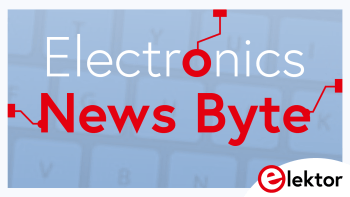Next-Generation Supercomputing, Silicon Photonics, and More
June 22, 2020
on
on
This week we present a mix of positive and negative electronics-related news. On the positive side, we take a look at new advances in supercomputing, and we consider the future of the silicon photonics market. On the more negative side, we consider the effects of Covid-19 on German start-ups, and we touch on Ripple20.


Fugaku: A New Supercomputing Leader
The Fugaku, developed jointly by RIKEN and Fujitsu Limited, has taken the top spot on the Top500, a list of the world’s fastest supercomputers. "On the Top500, it achieved a LINPACK score of 415.53 petaflops, a much higher score than the 148.6 petaflops of its nearest competitor, Summit in the United States, using 152,064 of its eventual 158,976 nodes," RIKEN announced this week. The idea was proposed a decade ago, and the supercomputing project took six years to complete. Japanese innovators intend to use the supercomputer for applications relating to the Society 5.0 Plan. The aim is to apply supercomputing in the areas of climate forecasting, drug development, disaster simulation, and more.Silicon Photonics Market Projected to Grow
The silicon photonics market could grow from $1 billion to $3 billion by 2025 (a 23.4% CAGR). Products include transceivers, variable optical attenuators, cables, switches, and sensors. Applications include data centers, telecommunications, life sciences, military, and sensing. "The rising demand for silicon photonics technology-based products in data centers will be the major factor driving the growth of the silicon photonics marketing," the Research firm MarketsandMarkets reports. North America will likely lead the way, followed by Asia. The key players in the industry include CISCO, Intel, and GlobalFoundries to name a few.Ripple20 Hits Critical IoT Devices
Israel-based research lab JSOF reports that Ripple20, a group of 19 security vulnerabilities, affect "hundreds of millions of devices (or more) and include multiple remote code execution vulnerabilities." What does this mean? Attackers have many options for exploiting electronic systems. For instance, the firm says that attackers can remotely control industrial equipment or even "hide malicious code within embedded devices for years." Companies such HP, Intel, and Schneider Electric have been affected, the firm claims.Covid-19 Weighs Heavy on German Start-Ups
Berlin-based Bitkom Research claims that approximately 68% of German start-ups say their situations have worsened due to Covid-19. The firm also reports that 43% of start-ups have claimed a decline in sales since the start of the crisis. Furthermore, start-ups "do not feel sufficiently supported by politics. Three quarters (75 percent) of those questioned say that the German government made the right decisions in the Corona crisis."Mergers, Acquisitions, and Deals
Adesto announced the completion of a CFIUS review for its proposed acquisition by Dialog Semiconductor. To address increasing demand for power semiconductors to control electric power with efficiency, Mitsubishi Electric recently acquired property with Sharp Fukuyama Semiconductor Co. Samsung has announced plans to expand its NAND flash production capacity in Korea, and construction "will pave the way for mass production of Samsung’s cutting-edge V-NAND memory in the second half of 2021."Stay Informed
Subscribe to Elektor's Electronics News Byte tag to receive updates about supercomputing, silicon photonics, and other electronics industry news. And make sure you subscriber to Elektor's free weekly E-Zine, which includes projects, updates, and articles.Read full article
Hide full article


Discussion (0 comments)